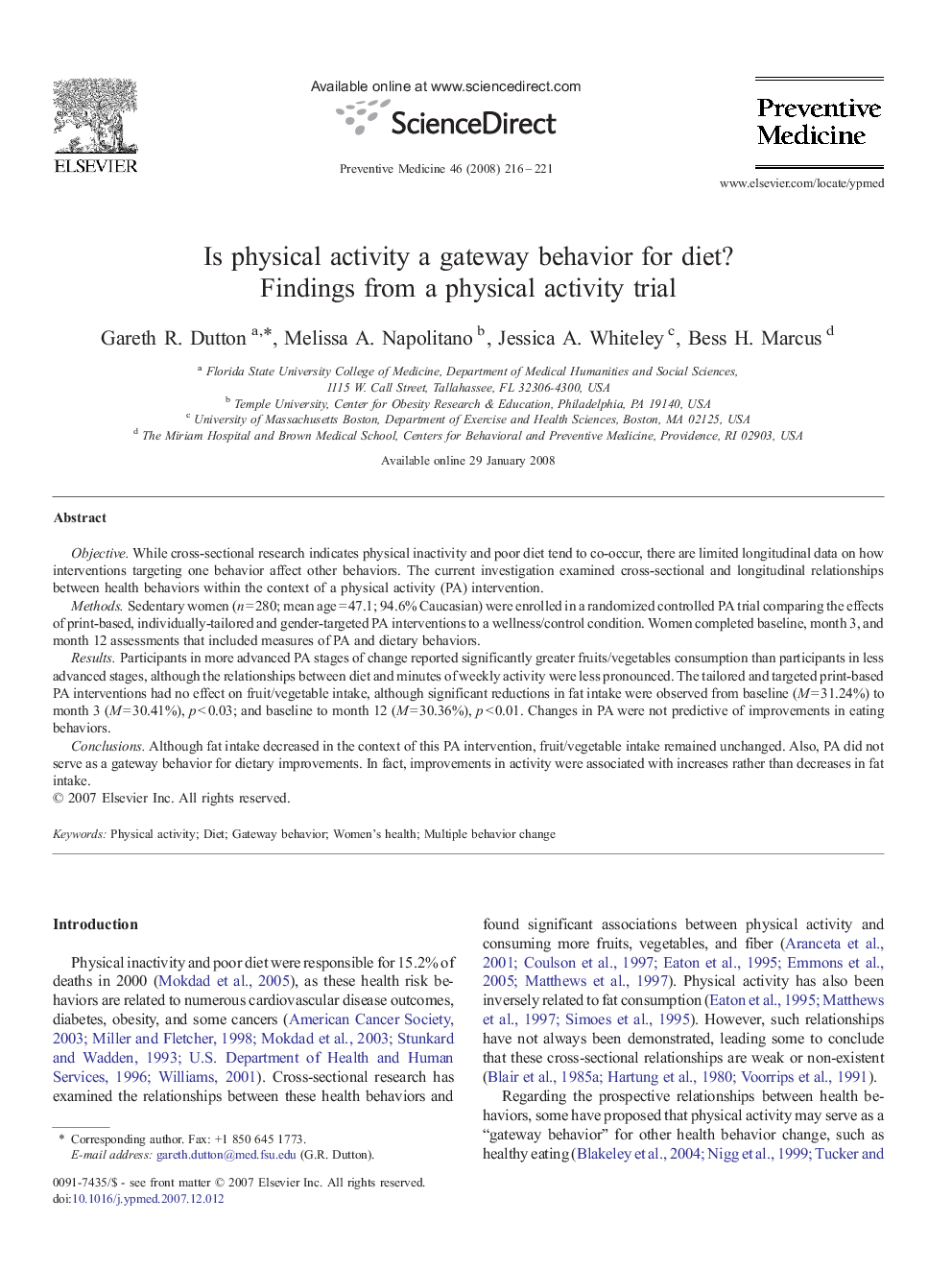| Article ID | Journal | Published Year | Pages | File Type |
|---|---|---|---|---|
| 3101597 | Preventive Medicine | 2008 | 6 Pages |
ObjectiveWhile cross-sectional research indicates physical inactivity and poor diet tend to co-occur, there are limited longitudinal data on how interventions targeting one behavior affect other behaviors. The current investigation examined cross-sectional and longitudinal relationships between health behaviors within the context of a physical activity (PA) intervention.MethodsSedentary women (n = 280; mean age = 47.1; 94.6% Caucasian) were enrolled in a randomized controlled PA trial comparing the effects of print-based, individually-tailored and gender-targeted PA interventions to a wellness/control condition. Women completed baseline, month 3, and month 12 assessments that included measures of PA and dietary behaviors.ResultsParticipants in more advanced PA stages of change reported significantly greater fruits/vegetables consumption than participants in less advanced stages, although the relationships between diet and minutes of weekly activity were less pronounced. The tailored and targeted print-based PA interventions had no effect on fruit/vegetable intake, although significant reductions in fat intake were observed from baseline (M = 31.24%) to month 3 (M = 30.41%), p < 0.03; and baseline to month 12 (M = 30.36%), p < 0.01. Changes in PA were not predictive of improvements in eating behaviors.ConclusionsAlthough fat intake decreased in the context of this PA intervention, fruit/vegetable intake remained unchanged. Also, PA did not serve as a gateway behavior for dietary improvements. In fact, improvements in activity were associated with increases rather than decreases in fat intake.
